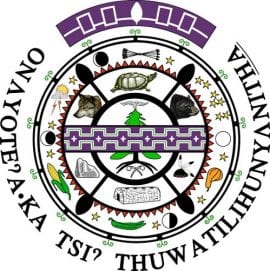
Today, following in the footsteps of the US Supreme Court’s recent decision reaffirming the Muscogee (Creek) Nation’s reservation boundaries, the US Court of Appeals for the Seventh Circuit reversed the lower court’s decision and held that, “The Oneida Reservation defined by the 1838 Treaty remains intact, so the land within the boundaries of the Reservation is Indian country under 18 U.S.C. § 1151(a).” Not only is this decision a victory for the Oneida Nation, it maintains legal stability and protects more than 100 tribes with similar land allotments.
The Village of Hobart, Wisconsin, has a long history of opposing tribal interests and legal rights. The case arises from the Village imposing fines on tribal officials for failure to obtain permits from the Village in connection with the Oneida Nation’s Big Apple Festival, even though the festival took place on tribal property. The Tribe sued the Village, seeking an injunction and a declaration that the Village could not enforce its regulations within the Tribe’s reservation. In response, the Village alleged that allotment either disestablished or diminished the Oneida reservation.
While the federal district court held that the Oneida reservation was not disestablished, it did conclude that the reservation was diminished either by the vesting of fee title of allotments to Indians, or the subsequent conveyance of those allotments to non-Indians. Additionally, the lower court relied on a broad (and incorrect) understanding that Congress intended that the General Allotment Act would diminish reservation. These were drastic departures from established law, which today’s decision corrected. Courts—including the US Supreme Court just weeks ago—have consistently held that the ownership status of individual land parcels has no bearing on whether reservation boundaries have changed.
Last September, NARF worked with Bethany Berger at the University of Connecticut’s School of Law to submit an amicus brief in support of the Oneida Nation on behalf of the National Congress of American Indians and the Indian Land Tenure Foundation.
More blog posts

